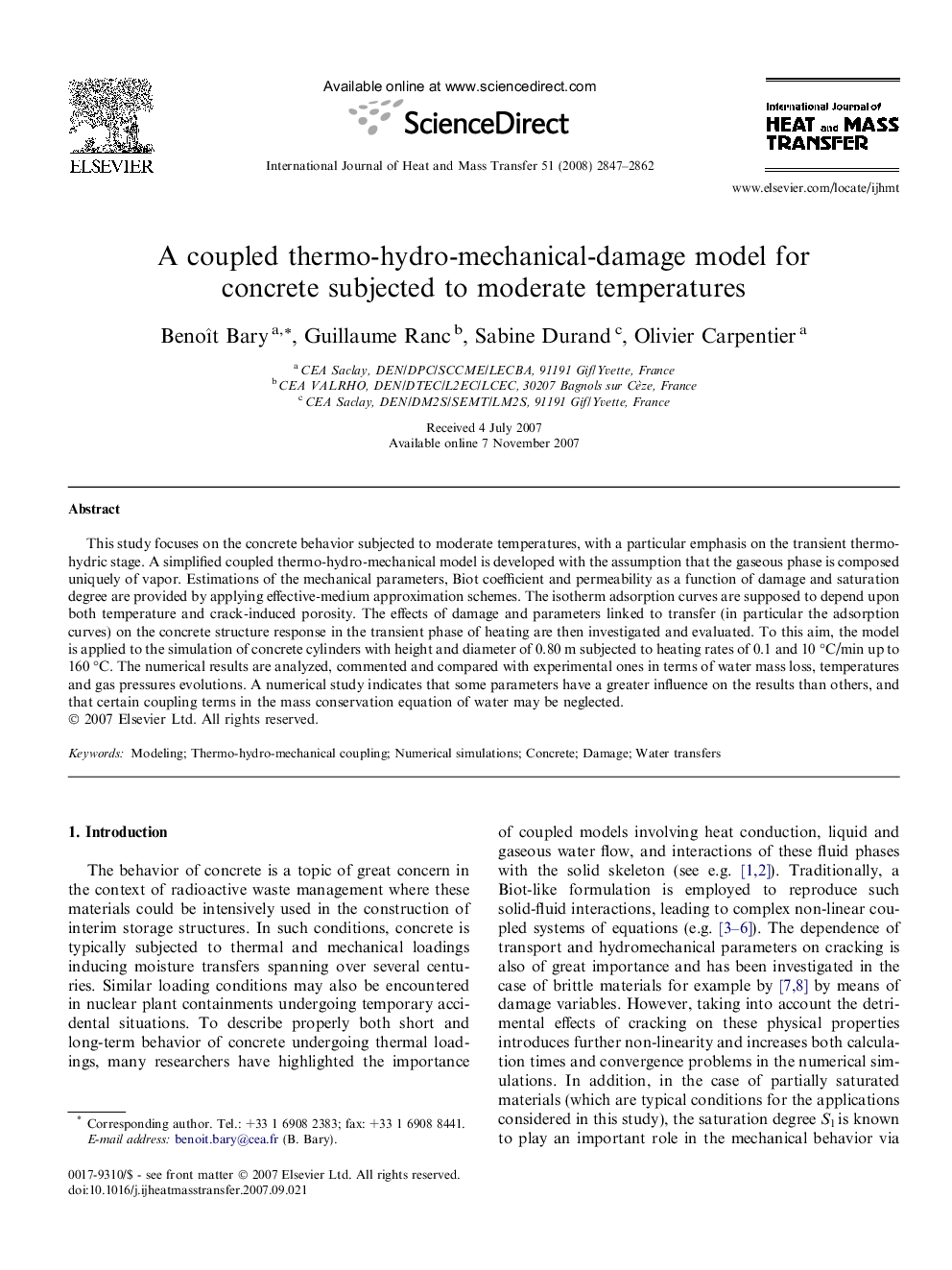| Article ID | Journal | Published Year | Pages | File Type |
|---|---|---|---|---|
| 660667 | International Journal of Heat and Mass Transfer | 2008 | 16 Pages |
This study focuses on the concrete behavior subjected to moderate temperatures, with a particular emphasis on the transient thermo-hydric stage. A simplified coupled thermo-hydro-mechanical model is developed with the assumption that the gaseous phase is composed uniquely of vapor. Estimations of the mechanical parameters, Biot coefficient and permeability as a function of damage and saturation degree are provided by applying effective-medium approximation schemes. The isotherm adsorption curves are supposed to depend upon both temperature and crack-induced porosity. The effects of damage and parameters linked to transfer (in particular the adsorption curves) on the concrete structure response in the transient phase of heating are then investigated and evaluated. To this aim, the model is applied to the simulation of concrete cylinders with height and diameter of 0.80 m subjected to heating rates of 0.1 and 10 °C/min up to 160 °C. The numerical results are analyzed, commented and compared with experimental ones in terms of water mass loss, temperatures and gas pressures evolutions. A numerical study indicates that some parameters have a greater influence on the results than others, and that certain coupling terms in the mass conservation equation of water may be neglected.
